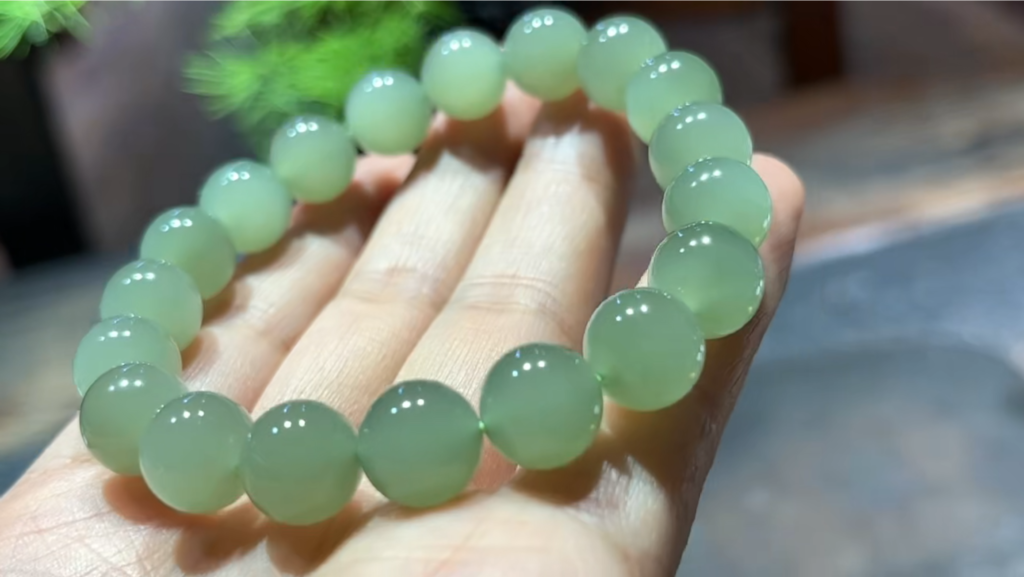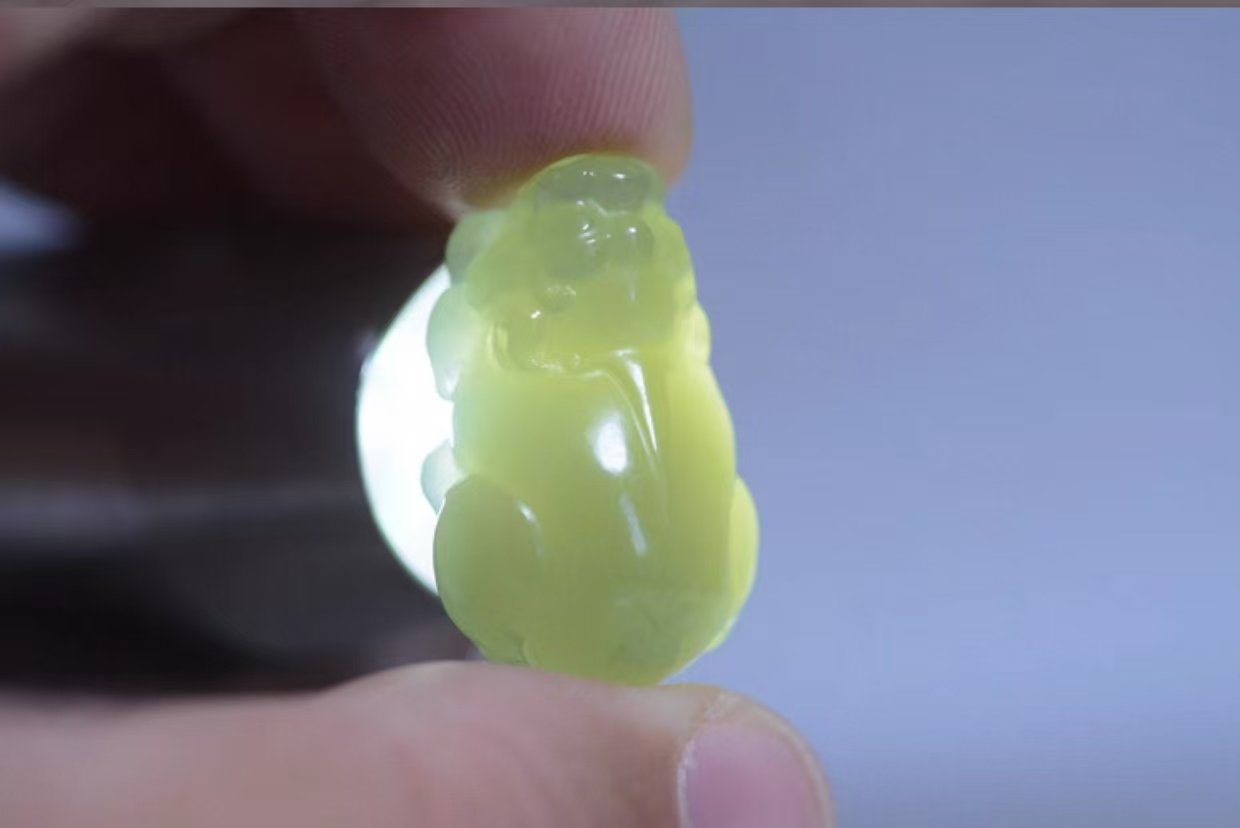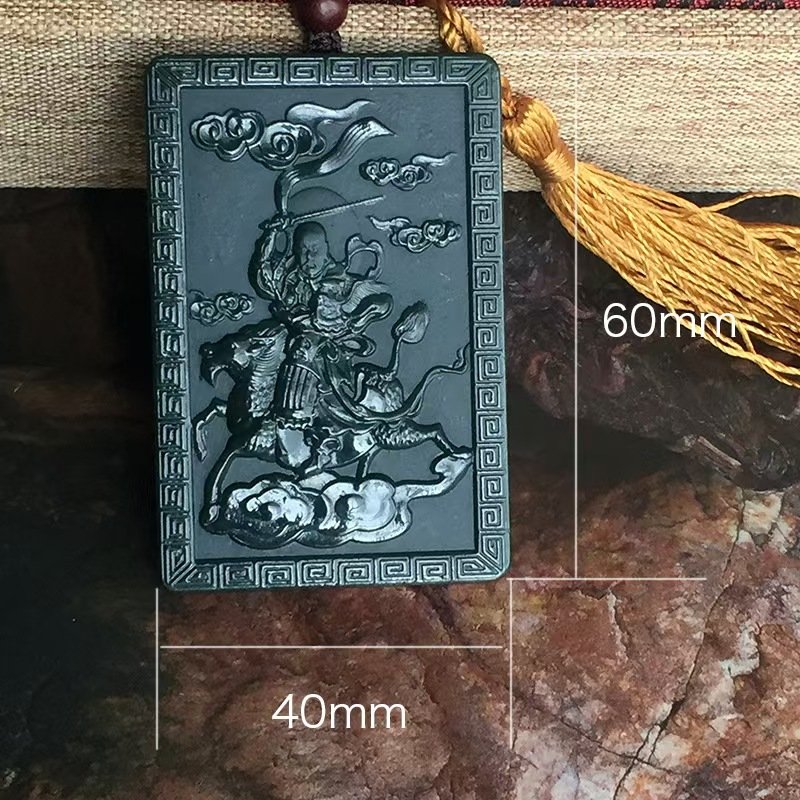Have you ever wondered why jade is more than just a beautiful stone in Chinese tradition? In Taoist culture, jade—especially Hetian jade—has long symbolized balance, protection, and inner harmony. Revered not only for its natural beauty but also for its spiritual significance, Hetian jade plays a mystical role in Taoist practices, believed to connect the wearer to the energies of nature and the cosmos.
Let’s explore the origins, mystical meaning, and role of Hetian jade in Taoist belief and practice.
What Is Hetian Jade?
Hetian jade (also known as Hotan jade) is a highly valued type of nephrite jade originating from the Kunlun Mountains and riverbeds of Xinjiang, China. Renowned for its soft texture, gentle luster, and warm tones (including white, green, and yellow), Hetian jade has been treasured for thousands of years.

Unlike jadeite, which is often found in modern jewelry, Hetian jade is known for its dense structure and long cultural legacy, especially in traditional Chinese art, symbolism, and spiritual heritage.
In Taoist thought, Hetian jade is considered not just a physical object, but a spiritual vessel that holds the power to harmonize energies and protect the wearer from negative forces .
Jade in Taoist Thought and Symbolism
In Taoism, jade is often seen as a symbol of purity, virtue, and harmony with nature. Ancient Taoist texts and philosophy—such as the teachings of Laozi (Lao Tzu)—draw comparisons between the qualities of jade and the ideal person: gentle yet strong, graceful yet enduring (Source: “Taoism and Jade,” Taoism.net).
Taoist practitioners have historically believed that jade helps to maintain spiritual balance and fosters a closer connection to the Dao (the Way). It is thought to enhance one’s inner peace and amplify the vibrational energy of the body, mind, and soul .
Jade is not merely an ornament; it is a symbol of Taoist wisdom, believed to possess the ability to protect the wearer from harm and enhance their spiritual practice.
In Taoism, Hetian jade Pixiu jewelry symbolizes wealth, protection, and good fortune. It is believed to ward off evil spirits and attract prosperity to its wearer.

Cultural Use of Jade in Taoist Traditions
Jade is traditionally used in Taoist cultural and ceremonial contexts—including in artwork, altars, and personal items that reflect key spiritual themes. Many Taoist symbols, such as the Bagua (Eight Trigrams) or the Taiji (Yin-Yang), are carved into jade to represent balance and interconnectedness .
In Taoist rituals, jade pieces are often used as spiritual tools to invoke divine blessings and assist in cultivating life force energy (Qi). These practices are thought to enhance the spiritual vitality of the practitioner, bringing them closer to the Taoist ideal of immortality and enlightenment.
In some communities, jade items are gifted or kept in the home as a symbol of peace, well-being, and longevity, believed to bring divine protection and act as a spiritual shield.
Invoke divine protection and ancient energy with this exquisite Hetian jade pendant, featuring Jiu Tian Ying Yuan Leisheng Puhua Tianzun, the Taoist Thunder God. Revered as a celestial commander of justice and balance, this deity is believed to drive away evil, restore harmony, and empower the spirit.

Why Taoist Practitioners Wear or Display Jade
Today, many people—Taoists and non-Taoists alike—wear or display jade pendants or charms as a way to feel connected to tradition, nature, and personal balance.
Common reasons include:
- Symbolizing inner peace and virtue
- Representing traditional Chinese aesthetics
- Marking spiritual or personal milestones
- Enhancing spiritual harmony and mindfulness
- Invoking the protective and healing properties of jade
Such uses align with Taoist values of natural simplicity and spiritual awareness, where jade is thought to encourage balance and tranquility.
How to Choose a Meaningful Hetian Jade Piece
If you’re interested in a piece of Hetian jade with cultural meaning, here are some tips:
- Choose natural, untreated jade from trusted sources
- Look for traditional craftsmanship and Taoist-inspired carvings
- Focus on personal or cultural resonance, not exaggerated claims
- Consider the spiritual significance of the jade piece, as it is believed to carry the energy of the universe
At our shop, we offer jade items rooted in Taoist aesthetics and symbolism, with carefully presented cultural background—respecting tradition without overstating meaning.
Explore our collection of authentic Hetian jade pieces that will not only elevate your style but also help you embrace the Taoist principles of balance and protection. Visit our store now at My Story of Orient.
Conclusion: Jade as a Cultural Bridge to Taoist Values
Jade has long served as a bridge between nature and humanity, especially in Taoist culture. Hetian jade, with its deep roots in Chinese history, continues to represent peace, simplicity, and spiritual reflection. Whether worn as jewelry or displayed at home, jade remains a timeless emblem of virtue and balance, believed to connect the wearer to the natural energies of the world.
🔗 Interested in Taoist-inspired jade? Explore our Hetian jade collection here.
Disclaimer: Believe in science and reject feudal superstition. The ancient Chinese people did not have a deep understanding of science as the current people do, so it is inevitable that they will make mistakes in their understanding of the world. Therefore, please do not believe that what goes against scientific common sense is only popular science.
References:
Hetian Jade: A Gemstone Legacy and the Historical Underpinnings of Chinese Jade Culture
[…] 2.What Is Hetian Jade and Why Taoists Revere It? […]
[…] 📘 To understand jade’s deeper cultural and spiritual significance, read: What Is Hetian Jade and Why Taoists Revere It? […]
[…] 🔮 Want to understand its deeper meaning? Check out What Is Hetian Jade and Why Taoists Revere It. […]
[…] 🧘♂️ Favored by Taoists for rituals and protection👉 Why Taoists Revere Hetian Jade […]
[…] ▶️ Explore this deeper in our feature article: What Is Hetian Jade and Why Taoists Revere It? […]
some really excellent info , Gladiola I found this.